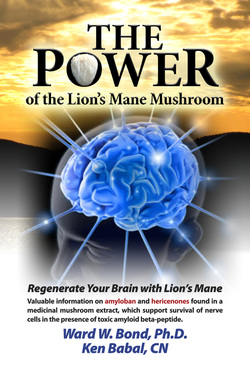 When you hear the line, “I only have eyes for you”. Does it mean they are saying it with their heart or their hormones? The hormone in question is Oxytocin. Oxytocin -- a hormone released by the pituitary gland (notably during both orgasm and childbirth) -- is known to affect our behavior. It promotes bonding. Know those cute little prairie dogs that just seem to have love in their eyes all the time? Well, truth be told they have the highest levels of Oxytocin of any mammal. If humans had high levels of this hormone it could end the high rate of divorce based on adultery. Let’s look how Oxytocin actually works. The hormone Oxytocin is probably best known for its role in childbirth and breastfeeding, although research has established that the Oxytocin drug can help forge deep connections with our partners, our children, our friends and even our pets. In childbirth, Oxytocin plays a vital role in triggering and regulating uterine contractions. If the contractions aren’t substantial enough, in a lot of cases Oxytocin is administered to help stimulate these contractions. Not only does this have a physical effect, but Oxytocin is a known as a ‘bonding hormone’ – ensuring that the mother starts to care for her young the moment after giving birth. The emotional and maternal reaction is heightened by the hormone, and the effects establish a bond between mother and baby. Oxytocin featured in breast feeding. By helping the mother to relax, it allows milk to flow to feed her baby. Through this, scientists and doctors started to take note, as the relaxing and wellbeing effects became apparent. Research also revealed that Oxytocin plays a huge role in the non-procreative aspects of sex. Both women and men release the Oxytocin hormone during lovemaking – and not only during orgasm. It also appears to be responsible for causing orgasms in the first place (and it doesn’t hurt to add the amino acid Histidine to the mix to create more histamine to make more powerful orgasms). Let’s talk sex. Yeah that made you sit up in your chair, but seriously LET’S TALK SEX! Oxytocin encourages a mild desire to be kissed and cuddled by your lover. In fact being touched anywhere on the body leads to a rise in Oxytocin levels. This causes a chain reaction within the body, including the release of endorphins and testosterone, which results in both biological and psychological arousal. And you thought testosterone was the main hormone for love and sex. When testosterone is high, it’s not in the mood for love, but sexual desire. Now you know that the hormone Oxytocin is responsible for ‘getting in the mood’ to get it on. Want to know why when your lover kisses your earlobes or neck you start to get those ‘feelings’ waking up in your body? Erogenous zones including earlobes, neck and genitals become sensitized to the effect of the hormone, and the body and mind become receptive and proactive in sexual activity. It not only arouses blood and the senses, but also promotes a bond of intimacy and closeness. The cycle continues to fire these pleasure giving endorphins and hormones and we naturally produce more Oxytocin and feel more pleasure as a reward. By stimulating genital areas and causing the nerves to fire spontaneously, orgasm is reached far easier and more powerfully. In orgasm, male Oxytocin levels climb five times higher, while women need higher levels if they are to reach orgasm. And during peak sexual arousal, the Oxytocin levels become very high indeed. At this point multiple orgasms can occur, but don’t be discouraged if you are ‘one and done’. Foods that can increase Oxytocin naturally are turkey, cottage cheese, nuts, fish, chicken, cheese and eggs are some of the foods that enhance oxytocin level in the body. Oxytocin is the hormone that helps unwind and diminish blood pressure and cortisol levels. My favorite is to eat dark chocolate. Nobody gives someone cottage cheese on Valentine’s Day or their anniversary. There you have it. The ‘Love’ hormone Oxytocin increases bonding and can actually put the ‘love’ back into lovemaking, like it should be.  Lion’s Mane (Hericium erinaceum), or yamabushitake, is an extraordinary mushroom for maintaining brain health and improving cognitive functions. It’s not surprising that a mushroom would surpass plants in this respect. Mushrooms differ from plants in that they develop at night. Because they contain no chlorophyll, they cannot manufacture food energy from the sun. Instead of calories from solar energy, they are said to provide lunar energy, which is believed to nourish the brain with intuition and imagination. Lion’s Mane is one of the edible mushrooms widely distributed in Japan and China. Its name comes from its beautiful white icicle-like spines. One variety of the mushroom is marketed as a remedy for gastric and duodenal ulcers and chronic gastritis. In traditional Chinese medicine, Lion’s Mane is used to promote strength, vigor and good digestion and for prevention of gastrointestinal cancer. Its beta glucan composition is very similar to some of the most potent anti-cancer mushrooms such as Agaricus blazei. Also, a hot-water extract made from Lion’s Mane is considered a health tonic and sports beverage. In clinical trials with aged disabled patients, Lion’s Mane treatment healed methicillin-resistant Staphylococcus aureus ((MRSA) infections. (MRSA is a pathogen prevalent in hospital settings.) Scientific studies performed in Asia confirm traditional use of Lion’s Mane as a cardiovascular, respiratory and nervous system tonic. In particular, Japanese studies show that Lion’s Mane is able to regenerate neurons by stimulating production of Nerve Growth Factor. Here are a list of nutrients that have been found to be beneficial for those with MS.
Lion’s Mane (Amyloban 3399) This Chinese herb contains properties that improve the production of Nerve Growth Factor which has shown to improve the regeneration of nerve cells. It is the only herb known to create NGF. Lion’s Mane is helpful in reducing the progression of nerve deterioration and helps to improve the healing of the damaged or degenerative nerve and brain tissue. · Lion’s Mane contains Hericenones and Amyloban · Improves the creation of NGF · Improves reflexes · Regenerates the nervous system and may help with pain Aequorin · Aequorin is derived from a specific species of jellyfish. · Aequorin prevents 50-55% brain cell death by regulating the function of calcium in the nervous system. · Aequorin is a calcium binding protein with prevents too much calcium from injuring brain cells. · Too much calcium into the cell, kills it. Lecithin Contains choline, which is needed to help repair the myelin sheath that surrounds the nerve. Dibencozide (Co-Enzyme B12) · Both multiple sclerosis and vitamin B12 deficiency may result in the demyelination of nerve sheaths. · Symptoms common to both a deficiency of B12 and multiple sclerosis include visual loss, abnormal sensory responses, and abnormal reflexes. · There are two key differences between a B12 deficiency and multiple sclerosis, however. · First of all, a severe B12 deficiency may lead to a disruption of myelin synthesis, while multiple sclerosis results in the breakdown of myelin. · Second, a vitamin B12 deficiency is easily remedied with vitamin supplements, which is why this deficiency must be ruled out in making a diagnosis of multiple sclerosis. · There may be a problem with vitamin B12 binding or transport associated with multiple sclerosis. · At the very least, vitamin B12 is important for building and strengthening myelin, and any B12 deficiency may aggravate multiple sclerosis or impede recovery. Threonine · This amino acid is a precursor of glycine synthesis in the spinal cord and essential to maintaining a healthy central nervous system. · It helps to reduce spasticity and improve mobility, particularly of the lower limbs. In a study conducted by Dr. Stephen Hauser at Massachusetts General Hospital, MS patients treated with threonine showed improvement. · Best of all, these patients did not suffer the side effects experienced by those who took anti-spasticity drugs, which may cause increased motor weakness and sedation. Sphingolin · This is an extract of bovine myelin sheath and is a rich source of myelin protective proteins. Use of this product may benefit those with myelin diseases such as multiple sclerosis (MS) and amyotrophic lateral sclerosis (ALS - Lou Gehrig's Disease). Diet Suggestions Eat a low-fat diet. This means to remove the “bad” fat from the diet. Fried foods, margarine and the like. Increase the good fats, flax oil and olive oil. · Decrease your saturated fat intake to no more than 5-10 grams per day by opting for vegetarian protein from beans, grains, and vegetables. · Avoid current fad diets and focus on your individual health profile. · Eat a variety of foods, with emphasis on dark-colored fruits and vegetables such as blueberries, cantaloupe, broccoli, kale, tomatoes, and sweet potatoes. · Eat whole, unrefined, nutrient-dense carbohydrates such as whole grain bread, cereals, pasta, brown rice, oats, barley, etc. · Eat organic vegetables, meats, or poultry to avoid exposure to excessive hormones and pesticides. · Limit your fat intake to a maximum of 25% of your total daily calories. · Limit saturated fats, such as butter and fats found in milk and meat, to no more than 5% of your fat intake. · Emphasize monosaturated fats (flax oil, fish oil) to constitute the remaining 20% of your fat intake. · Limit red meats to no more than 4 ounces two times per week. · Emphasize fish, fowl, and low-fat yogurt as protein sources. · Explore vegetarian sources of protein, including wheat gluten, and grain and bean dishes. · Limit cholesterol to less than 300mg daily. · Avoid sugar and sweets. Avoid Nutrasweet and Equal as these damage the myelin sheath. Avoid Splenda, as it damages the immune system. · Do not be fooled by the new “low-fat” desserts, as they are usually loaded with sugar. · Avoid packaged, processed foods that may contain undesirable nutritional constituents such as hydrogenated fats, preservatives, or high amounts of saturated fat or sugar. Avoid all artificial sweeteners and preservatives, as theses are neurotoxins and will slow down or damage his recovery. |
Archives
May 2022
|
 RSS Feed
RSS Feed